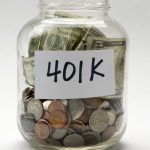In celebration of Mother’s Day, this article was posted on The Huffington Post on May 8, 2016.
Today, June 17, 2016, we are celebrating my mother’s FIRST day of retirement from 37 years of Nursing. Mommy, we made it! Ten years ago, my mother didn’t think this day was going to come. Why? A little over ten years ago, my mother was unemployed and bankrupt with $10,000 in her 401(k) account, a little over $370 for every year she worked. She had to cash it out.
Why did she cash out her 401(k)?
Around 2002, Mommy filed for Chapter 13 bankruptcy. My mom, like many others, used it to save her home from foreclosure. In addition to stopping foreclosure, a Chapter 13 bankruptcy plan reorganized her outstanding debts into manageable payments. She was required to make these payments to a trustee who then distributed the payments to her creditors.
Under Chapter 13, if the debtor fails to make their regular mortgage payments after he/she files for protection, the debtor can still lose their home. In 2005, my mom’s unemployment was not enough to cover the trustee payments and her mortgage; she was in danger of losing her home again.
Her retirement savings didn’t mean much if she didn’t have a place to live.
What about taxes and penalties related to an early withdrawal?
Distributions from a 401(k), or any other qualified plan, are taxed at the participant’s ordinary income rate. In addition to ordinary income tax, distributions made prior to age 59 ½ are subject to a 10% early withdrawal penalty. There are several exceptions to the penalty rule. One applied in Mommy’s case. Mommy’s unit closed in 2005, the year that she turned 55. If a 401(k) participant leaves their employer during or after the calendar year in which he/she reached 55, the penalty does not apply. Because she received unemployment compensation for the majority of 2005, she was not subject to a heavy tax burden as a result of her withdrawal.
West Virginia University College of Law Graduation May 12, 2012
By the end of 2005, Mommy was back to work and caught up on her mortgage. But with zero dollars saved, she was still woefully unprepared for retirement. Her debt was draining her paycheck. Although she cut her personal expenses, she was only able to squeeze 10% of her pay to contribute to her new employer’s 401(k). Even with a small amount coming in, I allocated her 401(k) to maximize her contributions.
My first task was to use her paycheck to eliminate her debt as quickly as possible. I focused on her bankruptcy. In 2006, she received her much-needed bankruptcy discharge. When she received her discharge paperwork, Mommy’s attorney told her with a smile, “Most people don’t finish Chapter 13 payment plans… Let alone early. Congratulations.”
I then turned the payments that Mommy made to the bankruptcy trustee into mortgage principal payments and additional retirement contributions. After a minor skirmish with her mortgage company, she paid off her home in 2012. From 2012 forward, she maxed out her 401(k) contributions, which included “catch-up” contributions for those over 50 years old. We also pushed her social security date back to her 66th birthday. After ten years of focused energy, Mommy’s last day at work happened yesterday, and it’s a good thing.
Retirement isn’t just about maximizing your savings but minimizing your expenses. If you must file for bankruptcy, allow it to be your “ground zero,” not your end. I will never be able to repay mother for what she’s done for me, but I hope that helping her achieve this goal helps
Like The Ivy Investor on Facebook!


